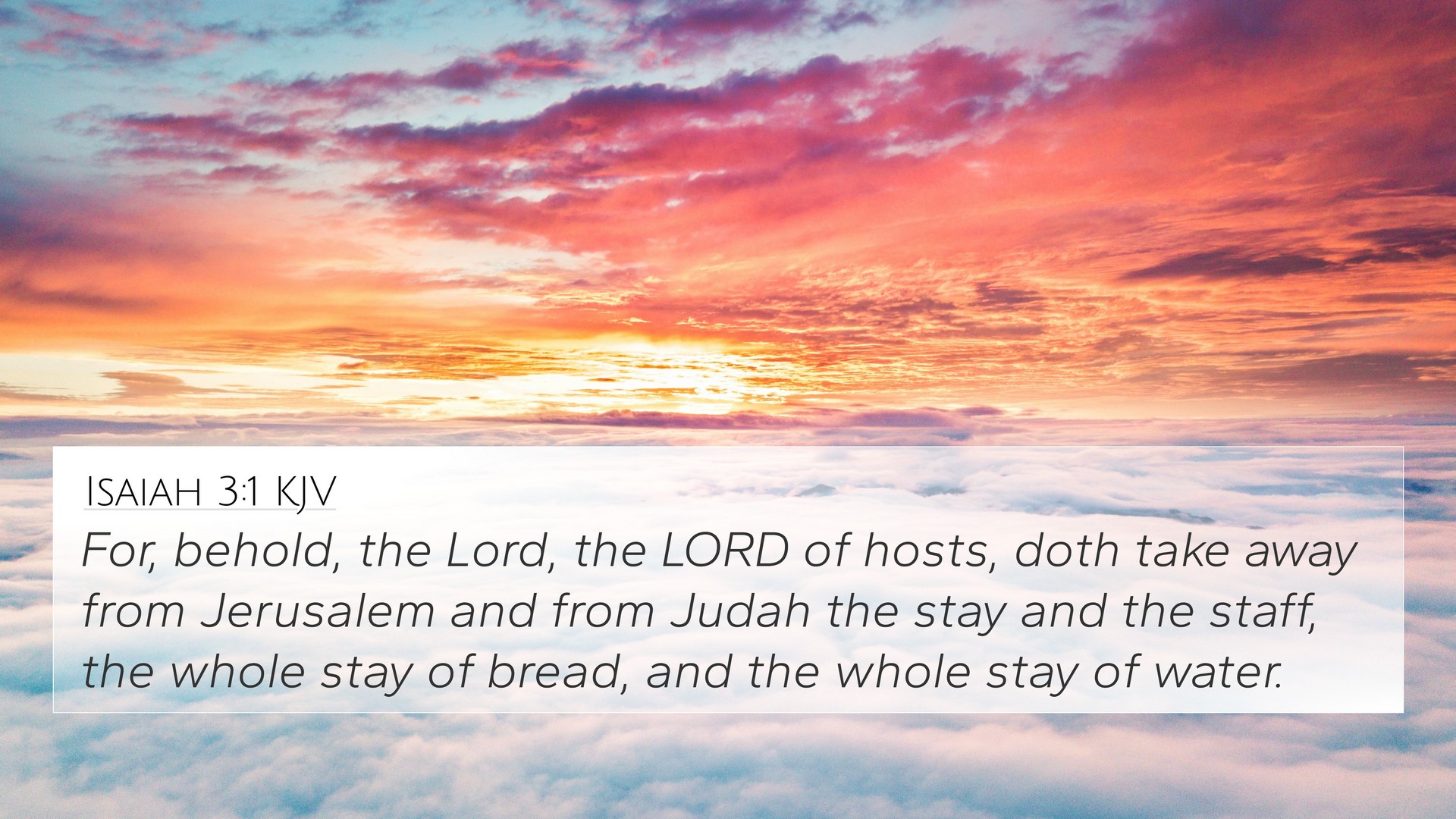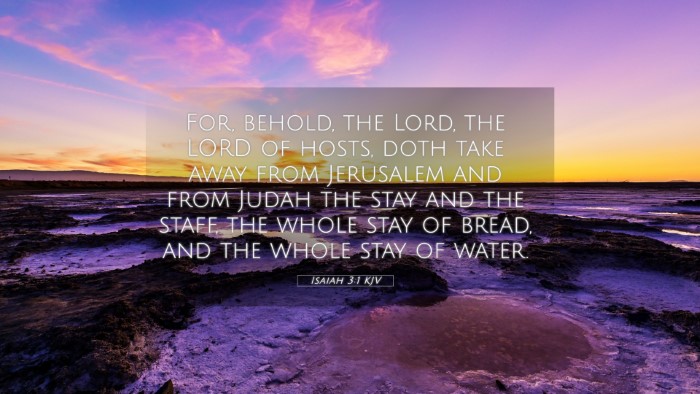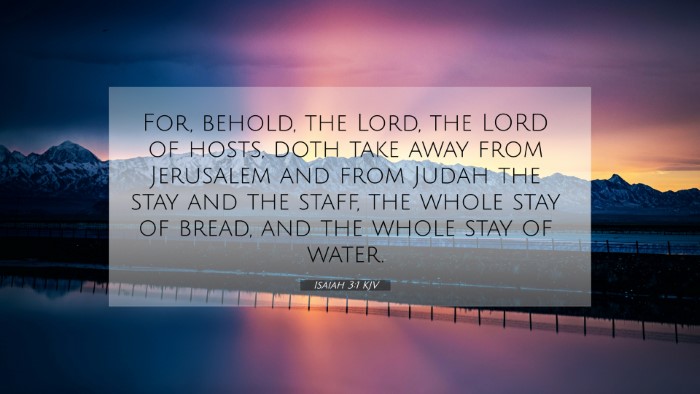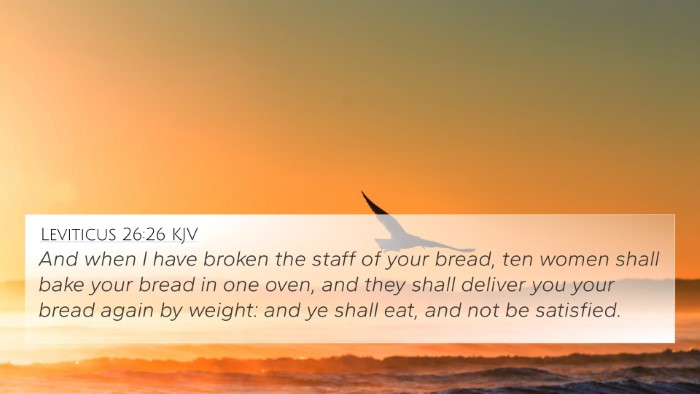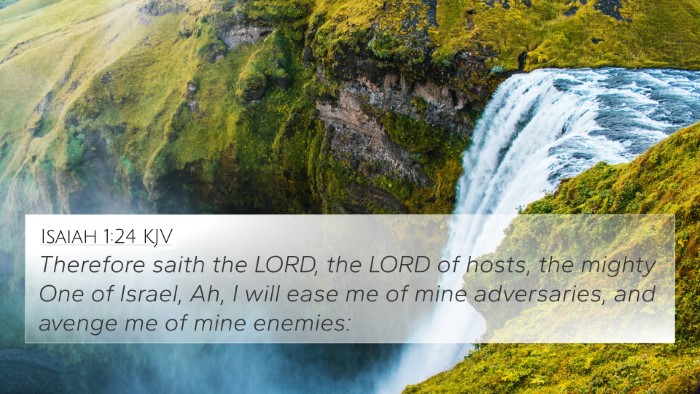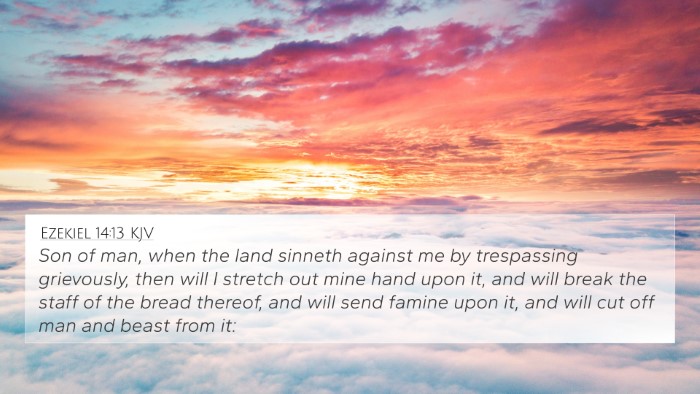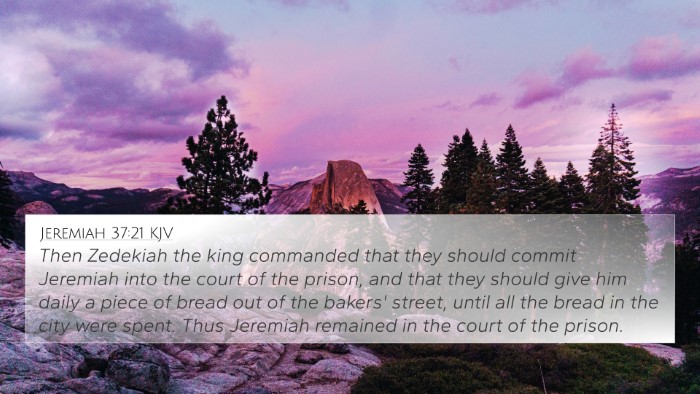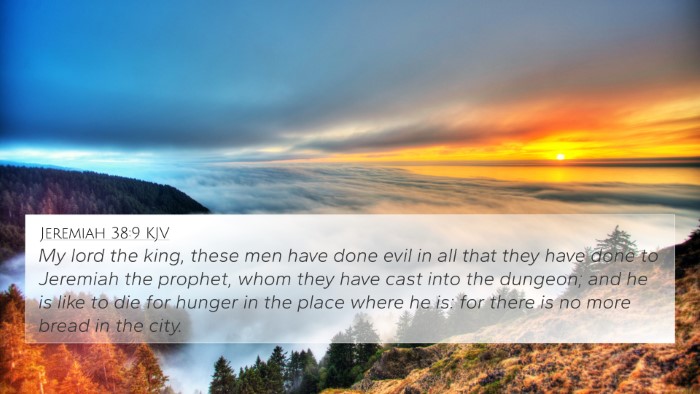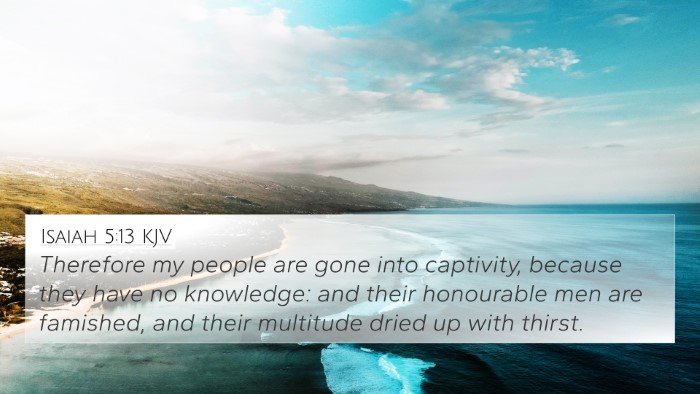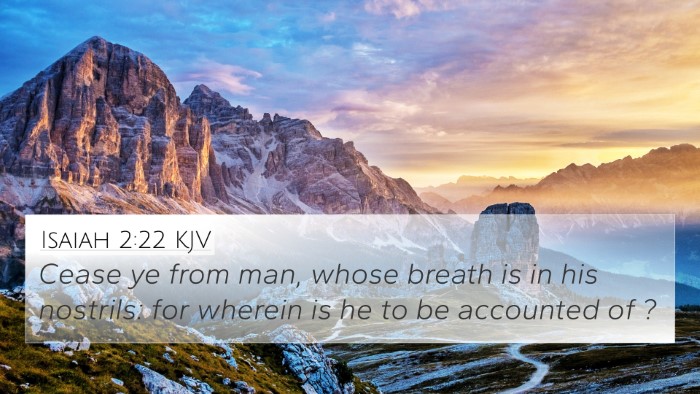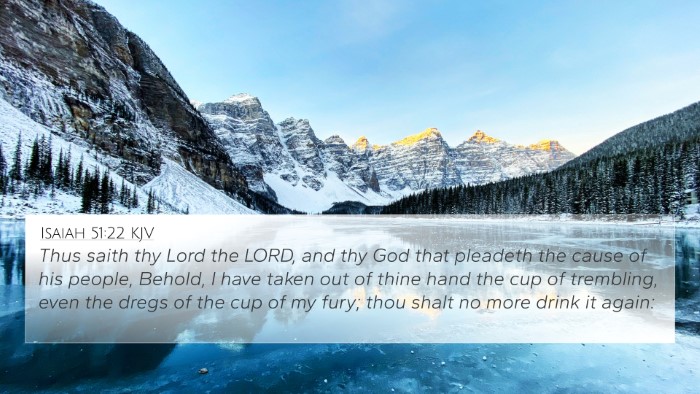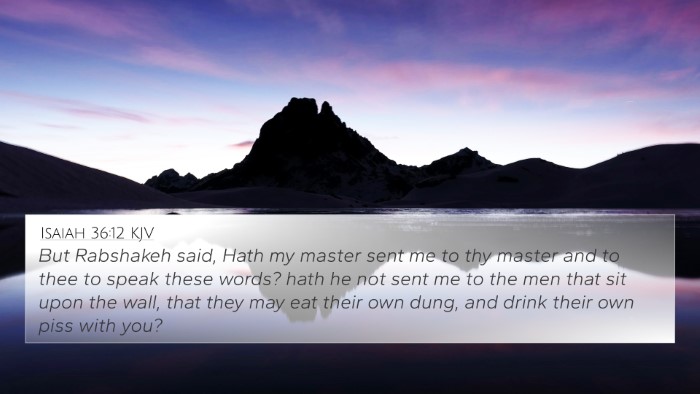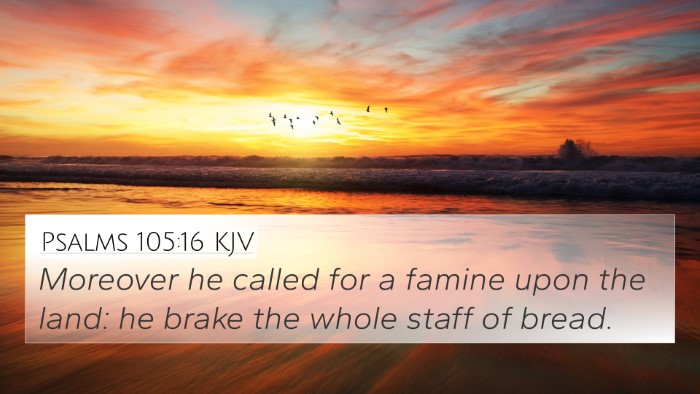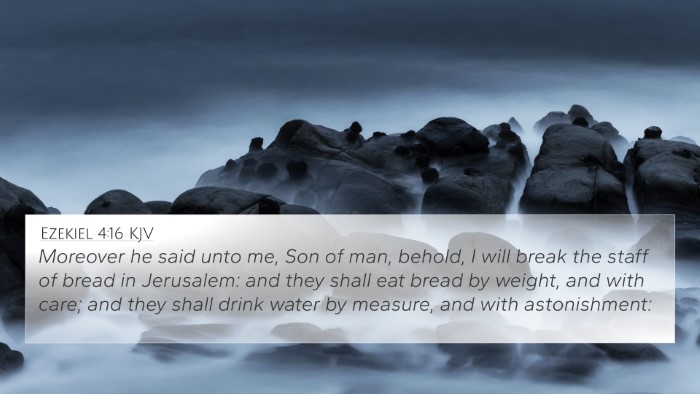Isaiah 3:1 states: "For behold, the Lord, the LORD of hosts, doth take away from Jerusalem and from Judah the stay and the staff, the whole stay of bread, and the whole stay of water."
This verse signifies a divine pronouncement of judgment against the people of Judah and Jerusalem, highlighting themes of dependency, sustenance, and divine provision.
Commentary Summary
Matthew Henry's Commentary
Matthew Henry elaborates on the consequences of Israel's failures in loyalty to God. He emphasizes that God, in His sovereignty, has the authority to remove blessings—represented here by essential provisions like bread and water. In this context, the stay and staff symbolize not only physical sustenance but also spiritual support and guidance, indicating a profound lack of reliance on God.
Albert Barnes' Notes
Albert Barnes emphasizes that the imagery of "stay" and "staff" refers to the foundations of life for the people. He connects this removal with the broader theme of divine judgment which, while harsh, serves as a call for repentance. The stripping away of these essentials illustrates the severity of the people's spiritual decline and serves as a warning of the consequences of abandoning God's ways.
Adam Clarke's Commentary
Adam Clarke takes a deeper look into the metaphor of bread and water as essential elements for survival. He comments that their removal points to a complete desolation caused by sin. Clarke sees this act as not just punitive but also corrective, meant to awaken the people's awareness of the need for divine aid amidst their spiritual blindness.
Biblical Cross References
Isaiah 3:1 can be understood more profoundly by examining related verses. Here are seven cross-references that illuminate the themes of divine judgment, sustenance, and the consequences of turning away from God:
- Jeremiah 14:3-4: Discusses the scarcity of provisions due to sin.
- Ezekiel 4:16-17: Illustrates the famine as a result of divine judgment.
- Amos 8:11-12: Prophecies of a famine not of bread but of hearing God's words.
- Matthew 5:6: Blessed are those who hunger and thirst for righteousness, pointing to spiritual sustenance.
- John 6:35: Jesus identifies Himself as the Bread of Life, emphasizing divine provision.
- Revelation 7:16-17: Promises God’s future provision for His people.
- Psalms 33:18-19: Assures of God's watchful provision during times of trouble.
Thematic Connections in Scripture
The themes presented in Isaiah 3:1 also find parallels in various parts of Scripture, underscoring the interconnectedness of Biblical texts. These verses often highlight God's providential care and the consequences of turning away from Him.
- Proverbs 10:3: "The LORD will not allow the righteous soul to famish." This reaffirms God’s commitment to provide for His people.
- Luke 12:24: Points to God's provision for the birds, assuring us of His care for all creation.
- Matthew 6:31-33: Encourages believers not to worry about physical needs but to seek God first.
Understanding Through Cross-Referencing
When examining Isaiah 3:1 through cross-referencing, we identify several tools and methods, enhancing our understanding of Biblical texts:
- Using a Bible Concordance: Look up key terms like "stay" and "staff" for contextual cross-references.
- Employing a Bible Cross-Reference Guide: Helps identify related scripture passages.
- Cross-Reference Bible Study: Engages deeper study into themes and characters across the scripture.
- How to Use Bible Cross-References: Focused exploration reveals connections between verses to deepen understanding.
Inter-Biblical Dialogue
The connections drawn from Isaiah 3:1 foster inter-Biblical dialogue, facilitating discussions surrounding divine provisions and consequences throughout the Old and New Testaments. This helps readers see the unified narrative of the Bible, where God consistently seeks to provide for and protect His people while calling them back to faithfulness.
